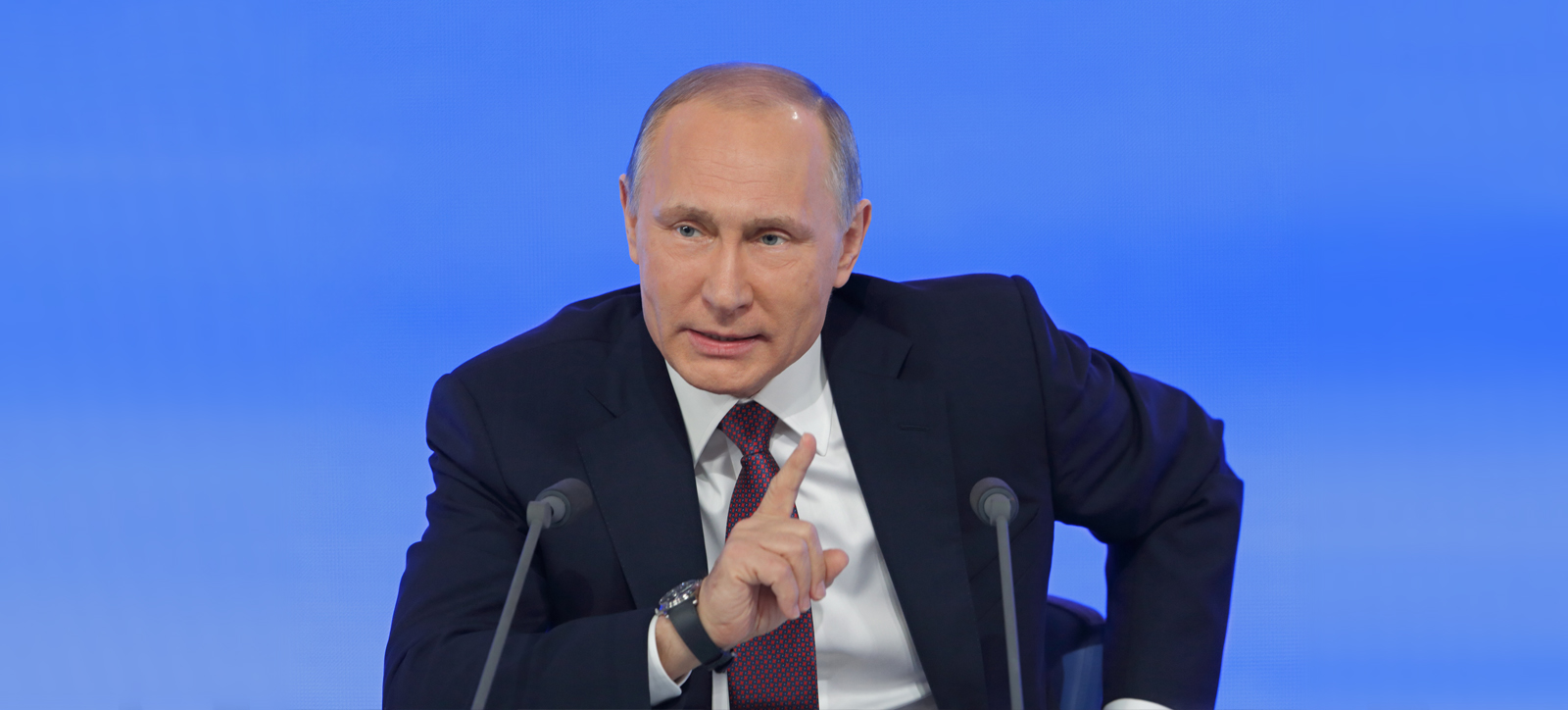
The Ukraine war has not been going well for Russia. But if Vladimir Putin is aware of that fact, he has not acknowledged it publicly.
Is it just spin? Or is it possible that he really does not know how badly things are going on the ground?
Putin would not be the first powerful leader to shield himself from an unpalatable truth by surrounding himself with an inner circle of ‘yes men’.
One of the most grotesque historic examples is the fact that Adolf Hitler spent the last days of the Third Reich moving around troops that did not exist. Nobody dared to tell him.
With the memory - and the lessons - of World War Two fading over time, a growing number of people seems to be attracted to the idea of strong leaders once more. The corporate world is no different. Frustrated by unrealised strategies, the desire for powerful leaders, leaders who get things done, is growing.
The unfortunate side-effects of power are isolation and conformity. It’s a price not worth paying.
Subservience is the consequence of disproportionate power
In 1989, before the German reunification, the Chairman of the State Council of the German Democratic Republic, Erich Honecker, was invited to visit Greifswald.
When he drove through it, he was surprised and excited about the city’s beauty. Nicely renovated buildings in shining fresh colours confirmed that East Germany was thriving. At least that’s what he thought.
What he did not know was that local politicians had anticipated the route he would take and renovated only the buildings visible to him. Nearby streets were shabby and run-down. The functionaries of the Socialist Unity Party of Germany presented Greifswald to their leader as they believed he wanted to see it, not as the city actually was.
This of course was something of a tradition in Eastern Europe. When Empress Catherine II of Russia travelled to Crimea in 1787, her former lover Grigory Potemkin built fake villages to impress her.
Potemkin villages - as they became known - were so expected by Soviet leaders that a member of a Soviet delegation who was caught in a traffic jam in San Francisco in the early 1960s commented: “I’ll bet they collected all these cars here to impress us.”
If leaders are not able to create a climate of open dialogue where everyone can be brutally honest, their access to information will be compromised. To prevent this, they have to welcome the bearer of bad news.
If you shoot the messenger, don’t be surprised when subordinates only report good news. Soon your prospect will seem unstoppable. Growth opportunities abounding, strategy executed perfectly, customers happy, happy, happy! While this fable persists, existential risks will multiply undetected.
Three options to mitigate against subservience
The first option is the establishment of a specific role. In 1587, during the reign of Pope Sixtus V, the Catholic Church established the office of 'Promoter of the Faith', more commonly known as the advocatus diaboli.
During the process of canonization, when the church decides who should be declared a saint, his role was to argue against the canonization of a candidate. Why not install such an office in a corporate setting? Someone with an official mandate to act as a contrarian will find it easier to speak up, even in a setting stifled by conformity.
Option two is a process with a similar goal in mind: discover flaws in your strategy.
Before moving to execution, ask those who developed the strategy to engage in a pre-mortem exercise. In this exercise the assumption is that the strategy has been executed but failed miserably. Taking on the role of a journalist, the team members write articles analysing the failure. The process forces everyone to take on a new perspective and once again empowers them to speak up.
Option three is to “exclude” the powerful leader from strategy making. Bring people from the fringes of the organisation and people from outside the corporation—ideally from other industries—together for ideation.
Some experienced hands should be part of this process to ensure relevance but careful selection is required to avoid any loud “this won’t work here” voices. The external participation, on the other hand, needs to be both loud and credible. The powerful leader will only be presented with the final ideas.
Of course, all three options require some openness from the leader. Only leaders who understand the curse of power, will provide room for constructive dissent.
Christian Stadler is Professor of Strategic Management at Warwick Business School, author of Enduring Success, and co-author of Open Strategy. Follow him on Twitter and LinkedIn or visit his website.
Read the original blog post on his Forbes channel .




 X
X Facebook
Facebook LinkedIn
LinkedIn YouTube
YouTube Instagram
Instagram Tiktok
Tiktok